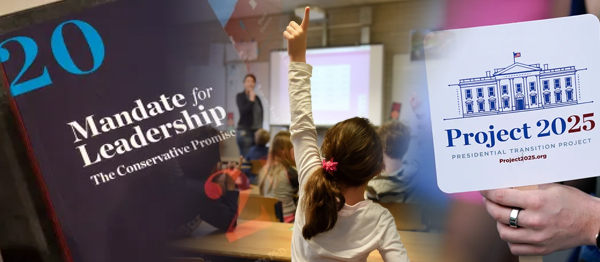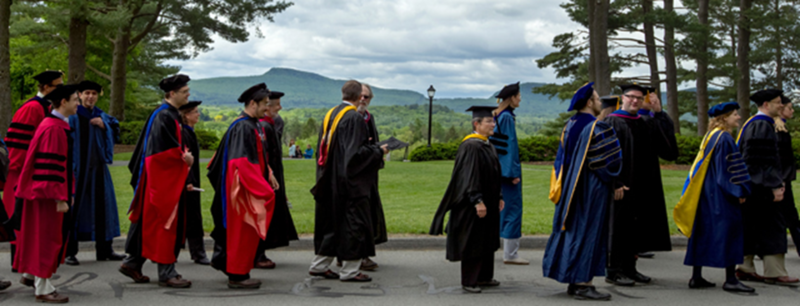Tenure Under Siege: States Push to Limit Faculty Protections
Input
Modified
The Growing Debate Over Faculty Tenure in Higher Education Arguments For and Against Tenure Reform The Future of Faculty Tenure: Uncertainty and Potential Reforms

The Growing Debate Over Faculty Tenure in Higher Education
In recent years, numerous states have introduced legislation that seeks to restrict or entirely prohibit faculty tenure in public higher education institutions. Texas, North Dakota, and Ohio are currently at the forefront of renewed discussions regarding the future of tenure, despite the fact that numerous of these legislative endeavors have been unsuccessful in the past. Educators, policymakers, and the general public have been engaged in intense discussions regarding these measures, which have prompted critical inquiries regarding academic freedom, faculty governance, and the broader role of universities in society. The primary justification for tenure is that it guarantees academic freedom and employment security, enabling faculty members to conduct research without concern for political or ideological reprisals. Nevertheless, tenure is criticized by critics for its inability to remove underperforming faculty members and its reduction of institutional flexibility, which makes it more difficult for universities to align with economic and educational demands.
Tenure has been the subject of numerous attempts to restrict in Texas. Representative Matt Shaheen introduced House Bill 1830, which aims to abolish tenure for new faculty appointments at Texas public universities beginning in September 2025. The measure does not impact tenured professors who are currently employed; however, it establishes a tiered employment system that substitutes tenure with annual performance evaluations. This is not the initial anti-tenure proposal to be proposed in Texas. Initially, Senate Bill 18 sought to prohibit tenure in 2023. However, the Texas House of Representatives' opposition resulted in the bill being modified to require more stringent performance evaluations for tenured faculty and to grant university committees greater authority to terminate underperforming professors. This revised bill was signed into law by Governor Greg Abbott, which has raised concerns regarding the potential consequences for faculty recruitment and retention in the state's higher education system. Critics contend that the elimination of tenure will weaken Texas' capacity to attract top researchers, restrict academic freedom as faculty may avoid controversial topics in order to preserve their job security and impede university-industry partnerships, as tenure protections promote long-term research. Universities may encounter difficulty in maintaining the same level of academic excellence and innovation in the absence of these safeguards.
Similar measures are also being considered in North Dakota with House Bill 1437, which aims to eliminate tenure for faculty at public two-year colleges beginning in July 2026. The bill is applicable to the following institutions: Bismarck State College, Dakota College at Bottineau, Lake Region State College, North Dakota State College of Science, and Williston State College. Faculty members are concerned that the measure may establish a precedent for more extensive tenure bans in the future, despite the fact that it does not abolish tenure at four-year institutions. PEN America and other critics contend that the reduction of tenure protections undermines faculty autonomy and job security, allows for political influence on hiring and retention decisions, and discourages experienced educators from working in North Dakota. The bill is defended by supporters, including State Representative Mike Motschenbacher, who draw comparisons between universities and businesses. He contends that faculty members should be subject to performance evaluations in the same manner as corporate employees, with their job security being contingent upon measurable performance metrics rather than indeterminate tenure protections.
Ohio's Senate Bill 1 does not entirely eliminate tenure; however, it significantly undermines tenure protections by mandating frequent and rigorous performance evaluations for tenured professors, requiring student evaluations that assess whether faculty members establish a classroom environment that is free of political, racial, gender, and religious bias, and granting university trustees increased authority over faculty dismissals and academic program reductions. Advocates contend that these measures guarantee impartiality in the classroom and hold faculty accountable. Critics caution that evaluations based on student perceptions of bias could be exploited to target faculty for political purposes, more frequent evaluations could compel faculty to avoid controversial topics, and universities may eliminate programs that do not attract high enrollment, thereby further restricting academic diversity. This change has the potential to result in the reorganization of academic programs, with a preference for disciplines with high enrollment numbers over those that are deemed less commercially viable, despite their intellectual and cultural significance.

Arguments For and Against Tenure Reform
There are numerous arguments in favor of restricting or eliminating faculty tenure. Advocates contend that tenure can result in job complacency, which complicates the process of dismissing underperforming faculty. Universities are able to rapidly adjust to changing academic demands and budgetary constraints by eliminating tenure. Furthermore, merit-based employment systems guarantee that faculty members maintain rigorous research and teaching standards. Nevertheless, opponents contend that the removal of tenure undermines academic freedom by causing faculty to feel compelled to self-censor their research and instruction in order to prevent administrative retaliation. Universities in states that abolish tenure may encounter difficulties in recruiting and retaining top-tier faculty, which may result in a brain exodus. Additionally, with the absence of tenure, the intellectual diversity of academia may be compromised by the potential influence of political agendas on faculty hiring and retention decisions. Academic freedom is regarded as a fundamental component of higher education, as it allows scholars to conduct innovative research and challenge established norms without concern for the possibility of losing their employment as a result of political or ideological shifts in university administration or state legislatures.
These tenure debates have elicited a diverse public response. These proposals have been vigorously opposed by faculty and academic organizations, including the American Association of University Professors and PEN America, who have cautioned that they pose a threat to faculty governance and academic freedom. Professors and researchers contend that tenure is essential for the preservation of high-quality education and research. The Republican legislators who are spearheading these initiatives contend that tenure reform is essential for accountability and transparency. In the interim, Democratic legislators and higher education advocates are opposed to these modifications, as they perceive them as an assault on academic autonomy. Mixed opinions were expressed in a discussion on Reddit regarding Texas' anti-tenure proposal. Some tenure critics shared anecdotes of professors who abused the system and contended that it is exceedingly challenging to dismiss ineffectual faculty. Advocates of tenure underscored its significance in safeguarding intellectual diversity and guaranteeing long-term research investment. The elimination of tenure has raised concerns among numerous users, as it would diminish the global competitiveness of Texas universities and hinder the state's capacity to retain exceptional educators and researchers.

The Future of Faculty Tenure: Uncertainty and Potential Reforms
The conflict regarding faculty tenure is far from resolved. Despite the failure of previous legislative endeavors, the trend of transferring power from faculty and enhancing external oversight persists. The increasing politicization of higher education indicates that tenure debates will likely endure, particularly in states that are governed by Republicans. Universities may experience a decrease in tenured faculty, which could result in a rise in contingent faculty who have less employment security if these measures are successful. Faculty may be under pressure to steer clear of controversial topics, which could potentially compromise academic freedom. States that prohibit tenure may encounter difficulties in recruiting distinguished scholars, which could potentially undermine their higher education systems. In contrast, universities will continue to provide faculty with long-term research opportunities and academic freedom protections if tenure remains unaltered. Compromises, such as more stringent post-tenure review systems, may result from discussions regarding tenure reform. Tenure reform has emerged as a critical issue in the broader discourse regarding the future of higher education in the United States, irrespective of the outcome. The next chapter of American higher education will be influenced by the balance between faculty rights, institutional accountability, and academic independence as legislatures and universities navigate these discussions. The long-term consequences of these policy changes are uncertain; however, their influence on the intellectual environment of universities, research capabilities, and higher education will likely be substantial.





















